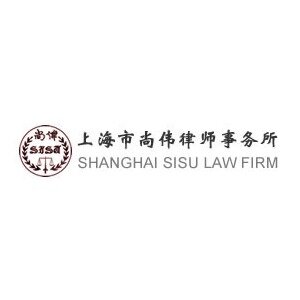Best Debt & Collection Lawyers in Shanghai
Share your needs with us, get contacted by law firms.
Free. Takes 2 min.
List of the best lawyers in Shanghai, China
About Debt & Collection Law in Shanghai, China
Debt and collection law in Shanghai, China, encompasses the legal framework governing the borrowing, lending, and repayment of money, as well as the measures that creditors can take to recover unpaid debts. This area of law is critical for maintaining a predictable and fair economic environment. Shanghai, being one of China's major financial hubs, adheres to national regulations while also implementing specific regional policies to address local economic conditions. The legal proceedings related to debt collection involve both amicable negotiations and formal litigation, thereby ensuring that creditors' and debtors' rights are balanced and protected.
Why You May Need a Lawyer
There are numerous situations where individuals and businesses may need legal assistance with debt and collection issues in Shanghai:
- Debt Recovery: If someone owes you money and is not responding to payment requests, a lawyer can help you pursue legal measures to recover the money.
- Loan Agreements: Lawyers can assist you in drafting or reviewing loan agreements to ensure they are enforceable and protect your interests.
- Disputed Claims: When there is a disagreement over the existence or amount of a debt, legal representation can help resolve the conflict.
- Threatening Collection Practices: If a creditor or collection agency engages in unlawful practices, a lawyer can help you protect your rights.
- Bankruptcy Proceedings: Understanding the implications and procedures of declaring bankruptcy in China requires legal expertise.
Local Laws Overview
Shanghai’s legal landscape for debt collection is influenced by national laws such as the General Principles of the Civil Law, the Contract Law, and the Enterprise Bankruptcy Law. Key aspects include:
- Contractual Obligations: Enforceability of debts is heavily dependent on the terms of written agreements.
- Interest and Late Fees: There are legal limits on the interest rates and fees that can be charged on overdue payments.
- Legal Proceedings: Debt recovery typically starts with a demand letter, followed by litigation if necessary.
- Statute of Limitations: The time limit for filing claims varies depending on the nature of the debt but often ranges from 2 to 3 years.
- Bankruptcy Resolution: Enterprises have specific laws governing insolvency, aimed at fair resolution for creditors and debtors alike.
Frequently Asked Questions
What steps should I take if someone owes me money?
First, communicate with the debtor to try to resolve the issue amicably. If this fails, consider sending a formal demand letter and seek legal advice if necessary.
Can I charge interest on unpaid debts?
Yes, but the rate must comply with the legal limits set by Chinese law to avoid being classified as usurious.
How does a statute of limitations affect my claim?
If you do not act within the legally prescribed period, typically between 2 to 3 years, you may lose the right to enforce the debt in court.
What constitutes illegal collection practices?
Practices such as harassment, intimidation, or misleading communications are considered illegal under Chinese law.
How can a lawyer assist in drafting loan agreements?
Lawyers ensure loan agreements are legally sound, protecting your interests by clearly outlining terms, interest rates, and repayment schedules.
What should I do if I can't repay my debts on time?
Communicate with your creditors as soon as possible to negotiate new terms and consider seeking legal advice for long-term solutions.
How is a debt litigation process initiated?
The process starts with filing a lawsuit, followed by court proceedings where both parties can present their evidence and arguments.
What are my rights during bankruptcy proceedings?
As a debtor, you can apply for reorganization or liquidation, which suspends legal actions by creditors and provides a structured repayment plan.
Can foreign creditors pursue debts in Shanghai?
Yes, foreign creditors can pursue debts, but may need legal representation to navigate the local laws and court system effectively.
What role do courts play in debt collection?
Courts are responsible for adjudicating disputes, enforcing judgments, and ensuring that the legal collection process is followed correctly.
Additional Resources
Individuals seeking additional assistance can refer to these resources:
- Shanghai Bar Association (for finding a qualified lawyer)
- Shanghai Municipal Bureau of Justice (for legal aid services)
- China Judiciary Court system for case information and updates
- Banks and financial institutions for loan renegotiation assistance
Next Steps
If you require legal assistance for debt and collection issues in Shanghai, China, consider the following steps:
- Consult with a qualified lawyer specializing in debt and collection law in Shanghai.
- Prepare all relevant documents, such as contracts, communications with the debtor, and past repayments.
- If facing an aggressive collection agency, document any instances of unfair practices for legal review.
- Research governmental resources or local bar associations for guidance on finding legal representation.
- Remain proactive and informed about your rights and obligations under Chinese law.
Lawzana helps you find the best lawyers and law firms in Shanghai through a curated and pre-screened list of qualified legal professionals. Our platform offers rankings and detailed profiles of attorneys and law firms, allowing you to compare based on practice areas, including Debt & Collection, experience, and client feedback.
Each profile includes a description of the firm's areas of practice, client reviews, team members and partners, year of establishment, spoken languages, office locations, contact information, social media presence, and any published articles or resources. Most firms on our platform speak English and are experienced in both local and international legal matters.
Get a quote from top-rated law firms in Shanghai, China — quickly, securely, and without unnecessary hassle.
Disclaimer:
The information provided on this page is for general informational purposes only and does not constitute legal advice. While we strive to ensure the accuracy and relevance of the content, legal information may change over time, and interpretations of the law can vary. You should always consult with a qualified legal professional for advice specific to your situation.
We disclaim all liability for actions taken or not taken based on the content of this page. If you believe any information is incorrect or outdated, please contact us, and we will review and update it where appropriate.












